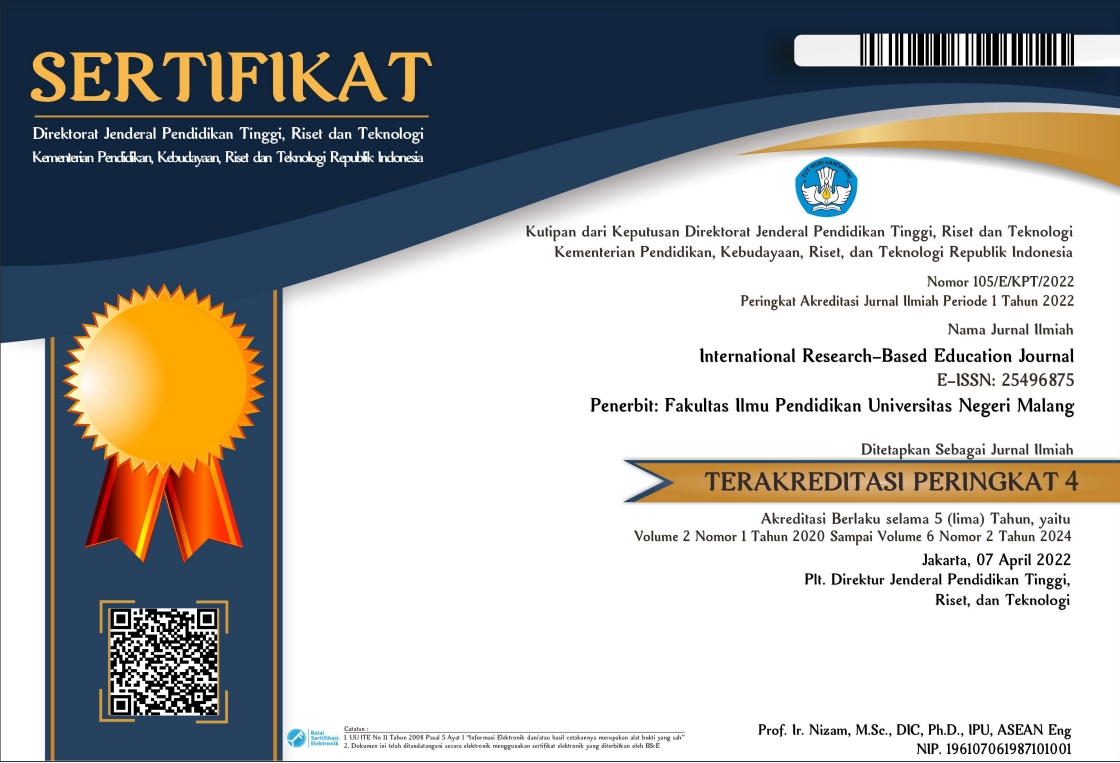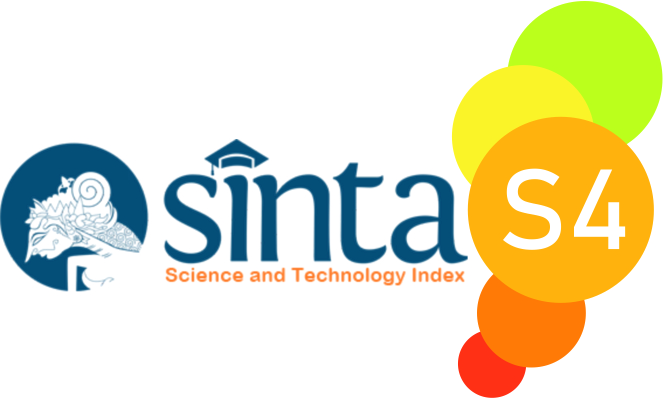Change of School Organizations
Abstract
the purpose of this study is to describe organizational changes, changes in school organizations and the meaning of changes in school organizations. This study uses a literature review study method with content analytic analysis techniques. The results of the analysis show that schools have three basic links, namely: Input - transformation process - output - (outcome). The internal and external environments that affect the three basic links are also connected. Changes in school organization are caused by government intervention, societal values, technological and scientific developments, administrative processes and meeting the needs of employees. Schools cannot resist change. Any change in its form makes the school organization more adaptive, manages change, empowers internal and external potential so that school excellence becomes the aspiration of the institution.
Keywords
Full Text:
PDFReferences
Bulkley, K. and Hicks, J. (2003) ‘Educational management organizations and the development of professional community’, College, Columbia University Occasional paper No. 69.
C.D. Ino Yuwono & M. G. Bagus Ani Putra : INZAN Vol. 7 No. 3 Desember 2005. Perubahan Organisasi.
Choi, M. and Ruona, W. E. A. (2011) ‘Individual readiness for organizational change and its implications for human resource and organization development’, Human Resource Development Review, 10(1), pp. 46–73. doi: 10.1177/1534484310384957.
Daniel Katz and Robert L. Kahn, The Social Psychology of Organizations ( New York: Wiley,1978) in Fred C. Lunenburg And Allan C. Ornstein ( Third
Fred C. Lunenburg and Allan C. Ornstein ( Third Ed.), Educational Administration, Concept and Practices, pp. 208 -210.
Frost, D. and Harris, A. (2003) ‘Teacher leadership: Towards a research agenda’, Cambridge Journal of Education. doi: 10.1080/0305764032000122078.
Handoyo, S. (2010) ‘Pengukuran Servant Leadership sebagai Alternatif Kepemimimpinan di Institusi Pendidikan Tinggi pada Masa Perubahan Organisasi’, Makara, Sosial Humaniora, 14(2), pp. 130–140.
Husaini Usman. (2008) Edisi kedua: Bumi Aksara: “ Manajemen Teori, Praktek dan Riset Pendidikan”.
Kellar, F. and Slayton, J. (2016) ‘Fostering and Achieving Organizational Change’, Journal of School Leadership, 26(4), pp. 690–715. doi: 10.1177/105268461602600406.
Kurnia, A. and Qomaruzzaman, B. (2012) Membangun budaya sekolah, Pendidikan Karakter Dan Budaya Sekolah.
Lunenburg & Ornstein: Educational Administration, Concepts and Practices, Sam Houston State University – Loyola University of Chicago, hal. 206 – 234.
Marginingsih, R., Darmajaya, J. B. and Marginingsih, R. (2017) ‘Kepemimpinan Karismatik Sebagai Employer Branding’, Jurnal Bisnis Darmajaya, 2(2), pp. 32–51.
Pedder, D., James, M. and Macbeath, J. (2005) ‘How teachers value and practise professional learning’, Research Papers in Education. doi: 10.1080/02671520500192985.
Porras, J. L. and Robertson, P. J. (1992) ‘Organizational development: theory, practice, research.’, in Handbook of Organizational Psychology.
Robinson, V. M. J. (2007) ‘School Leadership and Student Outcomes : Identifying What Works and Why’, ACEL Monograph Series.
Soliha, E. and Hersugondo (2008) ‘Kepemimpinan yang Efektif dan Perubahan Organisasi’, Fokus Ekonomi, 7(2), pp. 83–93. Available at: http://download.portalgaruda.org/article.php?article=110046&val=550.
Tucunan, R. J. A., Supartha, W. G. and Riana, I. G. (2014) ‘Pengaruh Kepemimpinan Transformasional Terhadap Motivasi Dan Kinerja Karyawan (Studi Kasus Pada PT. Pandawa)’, E-Jurnal Ekonomi dan Bisnis Universitas Udayana, 3(9), pp. 533–550.
Utami, S. S. (2007) ‘Pengaruh Kepemimpinan dalam Perubahan Organisasi’, 7(2), pp. 2007–2009.
Visscher, A. J. and Witziers, B. (2004) ‘Subject departments as professional communities?’, British Educational Research Journal. doi: 10.1080/0141192042000279503.
Wahab, A. A. (2015) ‘Kepemimpinan dalam Perubahan dan Perkembangan Organisasi’, Jurnal Eklektika, 3(1), pp. 3–8. Available at: http://ojs.unm.ac.id/Eklektika/article/view/5666.
DOI: http://dx.doi.org/10.17977/um043v3i2p46-53
Refbacks
- There are currently no refbacks.

This work is licensed under a Creative Commons Attribution-NonCommercial-ShareAlike 4.0 International License.










1.png)


